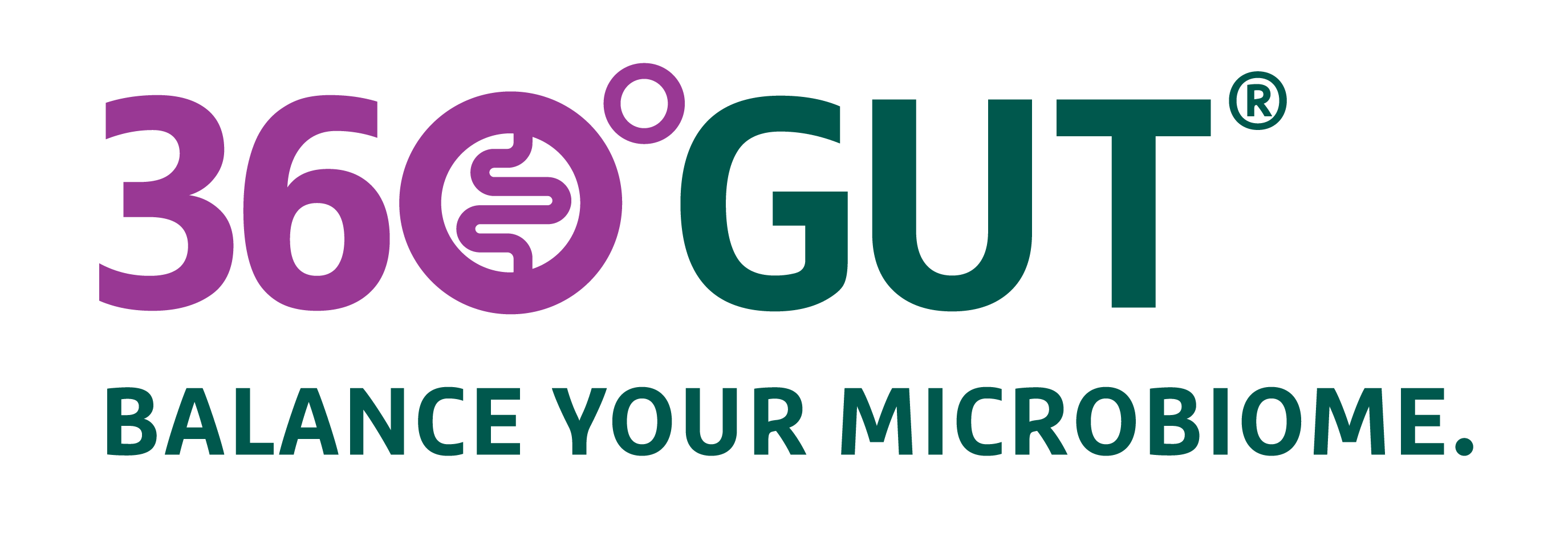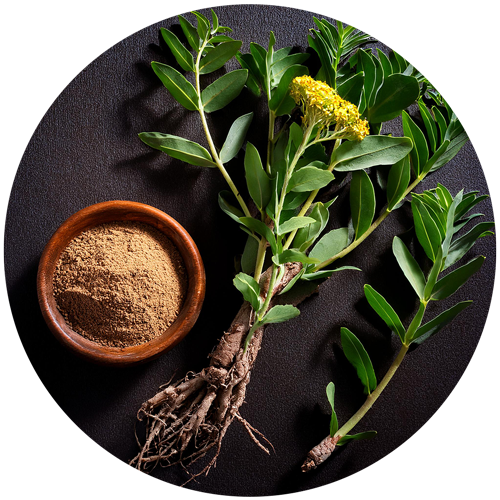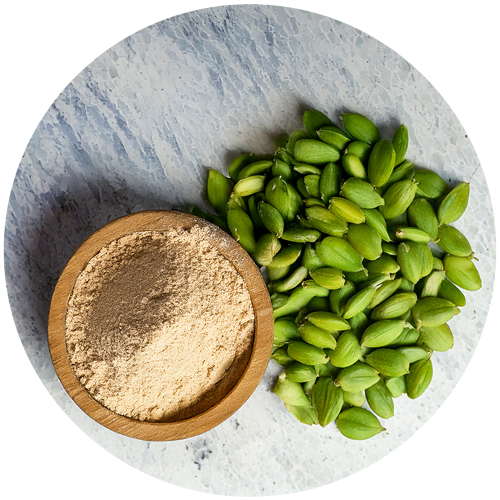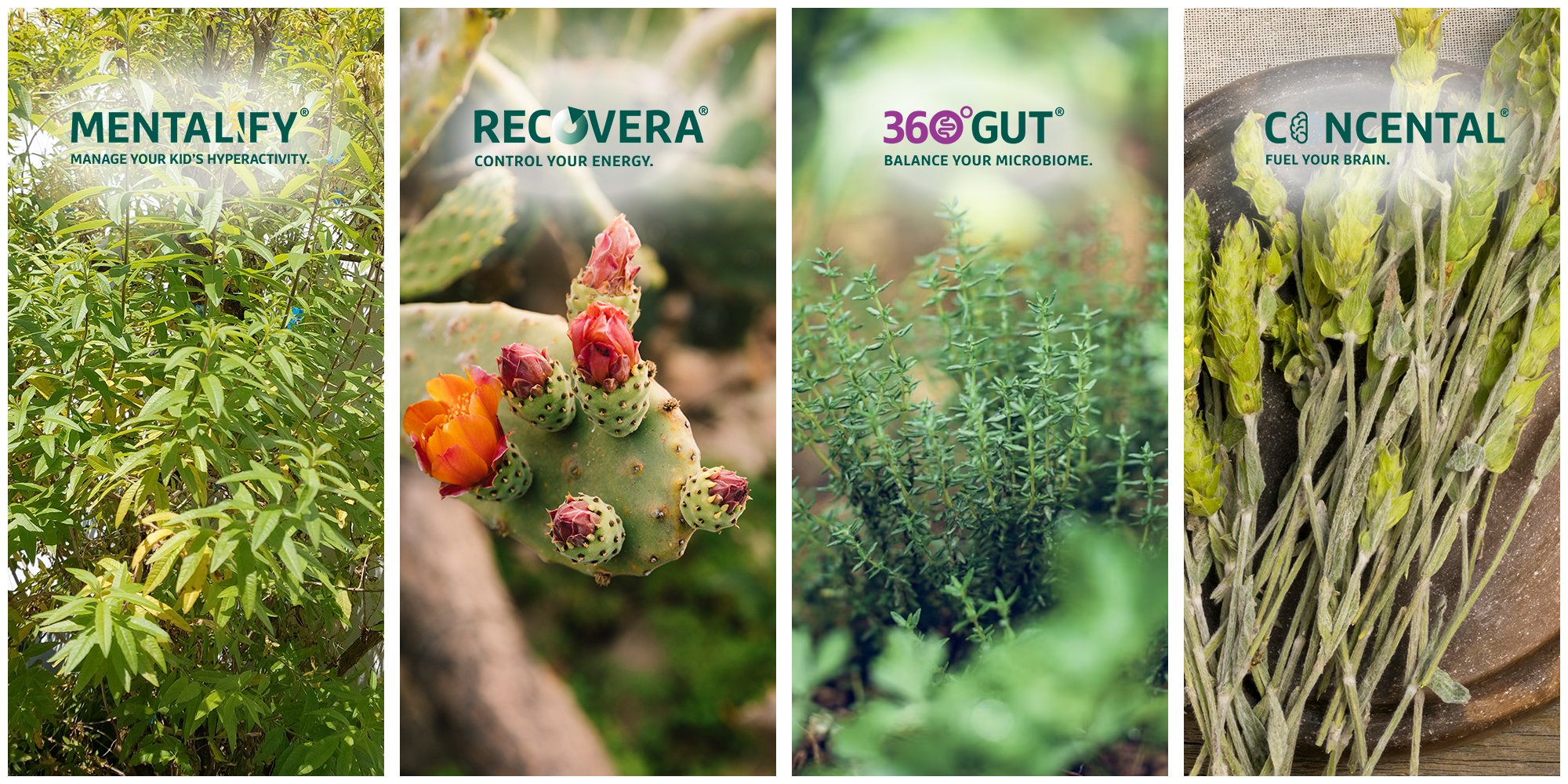360 GUT: for a healthy intestinal microbiota!
360 GUT®, extracted from Wild Thyme (Thymus serpyllum L.), is a new-generation prebiotic, effective at low doses and highly versatile in combination with pre-, pro- and postbiotics.

Thank you for your request.
We’ll get back to you as soon as possible!
Continue on page View our catalogWhy choose 360 GUT ®?

What is 360 GUT®?
360 GUT® is an extract of Wild Thyme, Thymus serpyllum (L.), native to Albania. 360 GUT® has been developed and researched by our partner FINZELBERG, to maintain an overall balance in the microbiome and thus improve well-being and quality of life. Indeed, the immune system and intestinal health have become priority health objectives for many consumers.
* Source: Jalil B, et al, Front Nutr. 2024 May 23;11:1380962. .
Traditional use
Cahier de l’Agence du medicament (France): Traditionally used to aid digestion.
EFSA claim
pending (ID 4491)
Improves digestive function (stomach, intestine).
Clinical study
Study design
Effect of 360 GUT® on microbiome function.
- Randomized, double-blind, placebo-controlled
- 40 healthy volunteers
- Duration: 10 weeks
- 2 weeks follow-up: prospective assessment of gastrointestinal parameters
- 600 mg daily for 4 weeks
- 900 mg daily for 4 weeks
Evaluation
Results
Microbiome
Firmicutes/Bacteroidetes rebalancing:
Firmicutes are associated with increased energy intake and fat storage. Bacteroidetes,
on the other hand, promote satiety and a more efficient metabolism. A good Firmicutes/Bacteroidetes balance is essential for weight control, metabolic health and microbiota health.
Intestinal transit and well-being
Improvement in various parameters:
◦ Feeling of bloating or abdominal pressure due to constipation.
◦ Noises or gurgling in the digestive tract.
◦ Gas accumulation / swollen abdomen.
◦ Abdominal discomfort.
◦ Flatulence / gas leakage.
◦ Feeling of incomplete intestinal emptying.
Association ideas by health area
Select one or more axes:
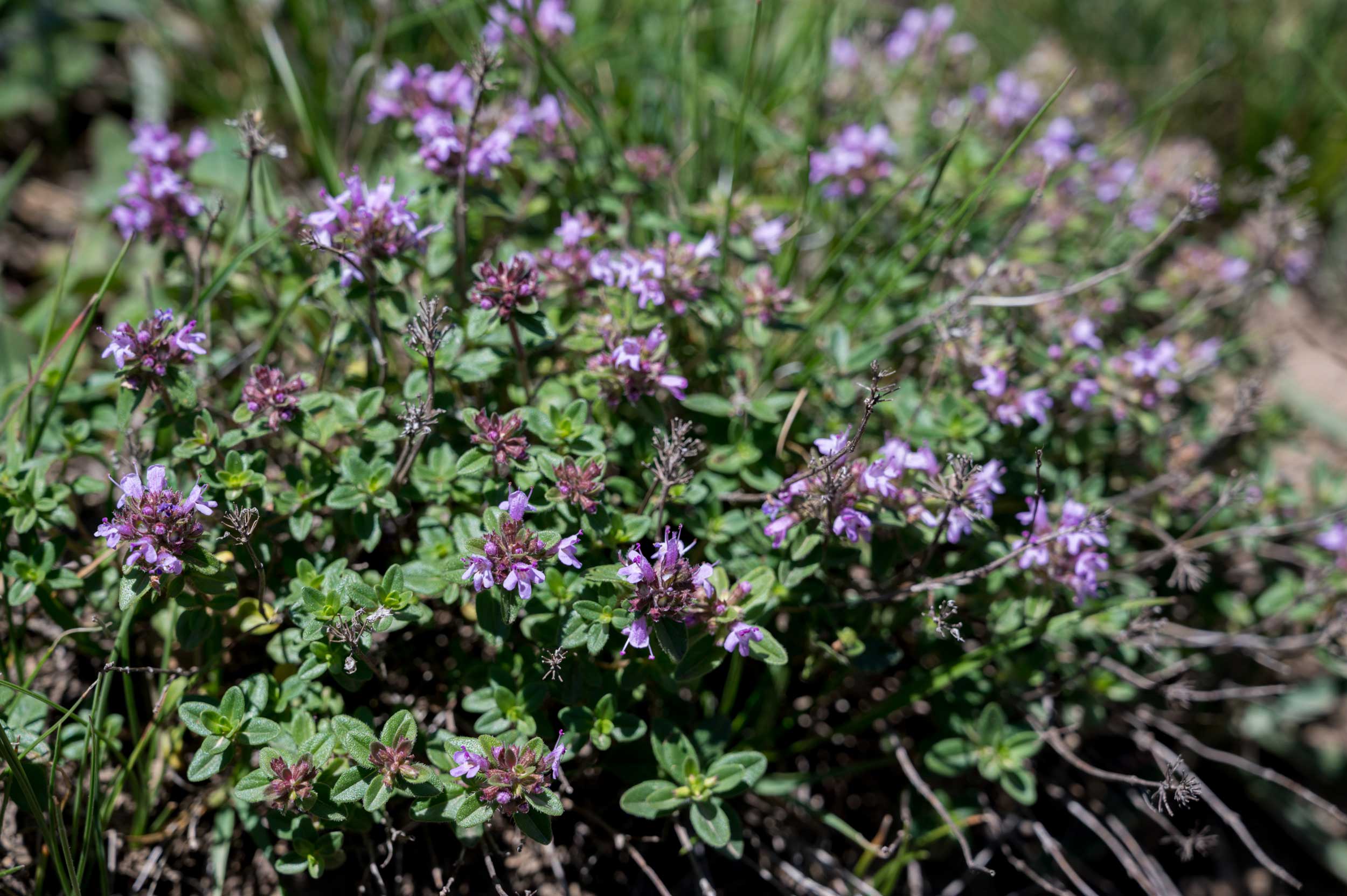
Detailed description
Wild Thyme (Thymus serpyllum L.) is an aromatic plant emblematic of the meadows and moors of Europe and Asia. It has been appreciated since Antiquity for its culinary and medicinal uses. Traditionally, it has been recognized for its digestive, respiratory and tonic virtues. Its flowering tops concentrate a wealth of bioactive compounds: essential oils (thymol, carvacrol, γ-terpinene, p-cymene, β-caryophyllene), as well as non-volatile compounds such as phenolic acids (rosmarinic, caffeic, etc.), flavonoids (luteolin, apigenin, etc.) and triterpenes.1 & 2
Recent research has focused on the polyphenols present in thyme extracts, such as 360 GUT®, which are associated with multiple biological activities: antioxidants, rebalancing the microbiota, ensuring intestinal integrity, promoting the production of SCFA* … 3. Low-molecular-weight polyphenols, such as gallic and caffeic acids, can be absorbed directly or after metabolic conversion.4 In the colon, they interact with the intestinal microbiota, which converts them into metabolites more readily usable by the body.5 In turn, polyphenol-rich extracts also influence the composition of the microbiota, favoring beneficial bacteria while limiting certain pathogens.6 & 7
Aqueous thyme extracts also contain soluble dietary fibres. These form a gel on contact with water, helping to improve digestion and stool consistency and frequency. Taken together, these mechanisms support digestive comfort and contribute to a better quality of life.7
* SCFA: Short Chain Fatty Acids
1: Salaria D & al, Indian J Pharmacol. 2023 Nov-Dec;55(6):385-394
2: Banaz Jalil & al, Frontiers in Nutrition. May 2024, doi:10.3389
3 : Hannah Cory & al, Front Nutr. 2018 Sep 21:5:87. doi: 10.3389
4: Singh A.K. & al, Nutrients. 2019; 11:2216. doi: 10.3390
5 : Cosme P. & al, Antioxidants. 2020; 9:1263. doi: 10.3390
6 : Dueñas, M. & al, Biomed Research International, 2015, Article ID: 850902. doi/10.1155
7 : Knaub, K. & al, Food and Nutrition Sciences, 13, 931-949. doi: 10.4236
